Side 1:
01. The Twister
02. Boogie Mr Williams
03. Turtle Rock
04. Canadian Ace
Side 2:
01. Rompin'
02. Jelly Roll Boogie
03. House Rockin' (aka House Rocker)
04. Back Bender
Download from:
http://www49.zippyshare.com/v/okErVdfW/file.html
These eight sides are from the Savoy 2LP set "Honkers and Screamers."
Facts on the sax tracks, Jack:
"The Twister" and "Boogie Mr Williams" were recorded in Detroit on December 20th, 1947. Personnel: Phil Guilbeau (trumpet); Wild Bill Moore (tenor sax); Paul Williams (baritone, alto sax); T.J. Fowler (piano); Herman Hopkins (bass); Reetham Mallett (drums).
Both tracks unreleased on singles. Another take of "The Twister" recorded on March 2nd, 1948 was released as a two parter on Savoy 665 in April 1948.
"Turtle Rock" and "Canadian Ace" were recorded in Detroit on March 4th, 1948. Personnel: Phil Guilbeau (trumpet); Wild Bill Moore (tenor sax); Paul Williams (baritone sax); Floyd Taylor (piano); Herman Hopkins (bass); Reetham Mallett (drums).
"Canadian Ace" was a title given to a previously untitled, unissued track on Savoy 2LP SJL2234 "Honkers and Screamers."
"Turtle Rock" was released on Savoy 773 b/w "Blues At Daybreak" in December 1950.
"Rompin'" "Jelly Roll Boogie," "House Rockin' "(aka "House Rocker"), and "Back Bender" were recorded in Detroit on January 13th 1949. Personnel: James Poe (King Porter) (trumpet); Louis Barrett, Billy Mitchell (tenor saxes); Paul Williams (baritone sax); Floyd Taylor (piano); John Holiday (bass); Bill Benjamin (drums).
"Rompin'," "Jelly Roll Boogie," and "Back Bender" were not released as singles. "House Rocker" b/w "He Knows How To Hucklebuck" was released as Savoy 702 in July 1949.
 |
| Label scan from 45worlds.com |
 |
| The Cash Box July 2nd 1949 |
Paul Williams was born in Lewisburg, Tennessee, on July 13th, 1915, spent part of his childhood in Bowling Green, Kentucky, before moving to Detroit with his family when he was thirteen years old. He started playing saxophone in school where he met trumpet player Lloyd Henderson. On leaving school the pair formed a small group, the Kings of Rhythm, which found a gig at a Detroit club (The Morris Cafe) which lasted five years. The group played popular hits of the day for the white patrons of the club.
The Second World War brought about the breakup of the little band and as the war wound down Paul Williams joined the Clarence Dorsey band which played for black audiences at the Sensation Club. Paul next played for the King Porter band at a club called "Sportree" and it was here that he was scouted by Savoy Records man Teddy Reig after head honcho Herman Lubinsky had received a tip from local record shop owner Joe Battle.
The King Porter outfit didn't impress Reig too much but Paul Williams did, so Paul split from the Porter band and used the T.J. Fowler band as backing at his first two Savoy sessions on September 5th and October 6th 1947. The October session yielded the big hit "Thirty-Five Thirty" (named after the address of Joe Battle's record shop) which made the top ten in the national R&B chart.
Towards the end of 1947 Paul formed his own band which included musicians from the King Porter outfit as well as tenor sax man Wild Bill Moore. The same group of musicians also produced recordings on Savoy for release under Wild Bill's name.
Good sellers for the Williams band through 1948 included two disc jockey tributes, "Bouncing With Benson" and "Waxie Maxie," and the hard blowing two-parter "The Twister." The latter two tracks featured Wild Bill's muscular tenor sax with Williams playing hot 'n' heavy baritone. Savoy A&R man Teddy Reig is usually credited with persuading Paul to make the decisive shift to baritone sax, a development which gave the band a big sound which could send audiences wild, particularly on honk heavy numbers like "The Twister."
By the time the band recorded "The Hucklebuck" in December 1948 Wild Bill had left, thus missing out on THE R&B phenomenon of 1949. Not only was it the top selling R&B disc of the year, it inspired big selling cover versions in both the pop and R&B fields. It's a disc which deserves it's own post and one is in preparation.
The huge sales of "The Hucklebuck" brought Paul Williams very little financial reward. He was not the composer (and thereby hangs a tale ...) and performers' royalties had a way of ending up elsewhere in the Savoy organisation. He continued to record for Savoy until the end of 1951 but no other release came anywhere near the success of "The Hucklebuck." A follow up, "He Knows How to Hucklebuck" / "House Rocker" had modest success in the second half of 1949. "What's Happening" and "Rockin' Chair Blues" from 1950 and 1951 made even less noise.
Paul Williams first post-Savoy session for Jubilee / Josie in mid-1952 failed to engender any releases but a session for Mercury later in the year produced two singles. In 1953 Paul had two singles on Jax with Noble Watts now joining the band on tenor sax. In 1954 - 1956 there was a spell of label-hopping as the Williams band had releases on Groove, Capitol, Rama, Josie and Vee-Jay. A couple more releases followed in 1961-62 on Warwick / 7 Arts and Ascot.
Throughout his recording career and beyond, Paul's band was in demand as a backing band for live appearances by R&B and rock and roll artists. He was on the bill of Alan Freed's infamous March 1952 "Moondog Coronation Ball" at the Cleveland Arena and indeed was the only act to actually perform before the police shut the event down due to overcrowding.
You can see Paul backing various well known R&B performers in those old 1950s "Showtime At The Apollo" films which crop up in various guises on TV and DVD (and YouTube). He was also a studio backing musician for Ruth Brown and a band director for Lloyd Price and James Brown.
 |
| With Amos Milburn on Showtime At The Apollo |
Sources - Peter Grendysa and Atilla Oess interviews with Paul Williams in 1980 and 1985 for the Saxophonograph LPs "The Hucklebuck" and "Spider Sent Me."
Bob Porter - Soul Jazz (Jazz In The Black Community, 1945-1975), XLibris, 2016.










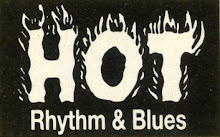
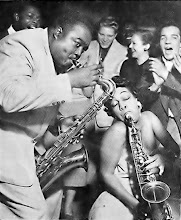






%2045%20-%201003A.png)
.jpg)
















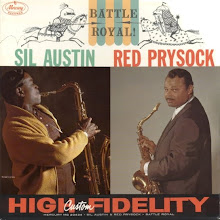
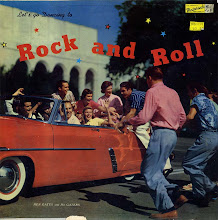
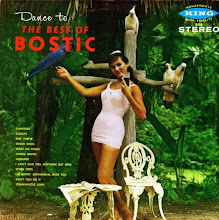
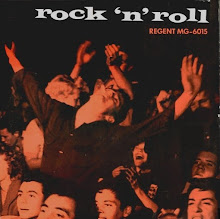
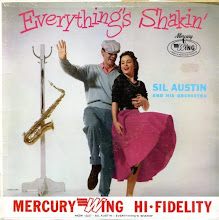






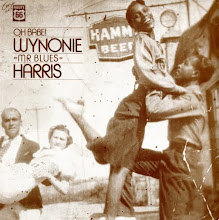

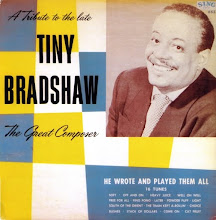





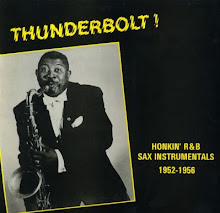

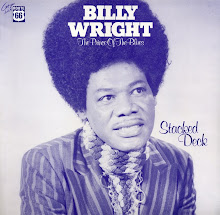






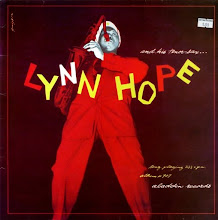



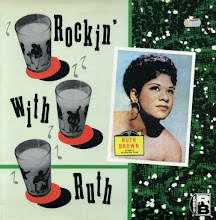


10 comments:
Many thanks, again, boogiewoody!
Thanks George. Hope you're enjoying these jumpers and honkers on the blog.
BW
Thanks from me too boogiewoody.
Cheers Bob. I quite like the way this post turned out. I re-edited it about 8 hours after it was first posted and added a couple of visuals. The sounds are good too, I like to think, despite many of the tracks being unissued.
@boogiewoody: you're doing a grand job man. keep 'em comin.
Very nice post! Thanx!
Thanks, Kurt. Your re-up requests - Sonny Thompson will probably re-appear early next week as I still have the mp3s in my music library along with cover scans, etc. I could maybe do better cover scans though. I'm listening to it right now - what an album!
After Hours is more of a problem as the mp3s and cover scans were lost in a computer crash some years ago. I do still have the WAV file so I can rip new mp3s but I will have to do new scans. Will do it!
In the meantime I have a couple of other projects to finish. Patience please! all good things come to those who wait ...
BW
Thanx very much! Looking forward...
KurtGS
Leo Parker is familiar to me; Paul Williams not so. Many thanks for introducing him to me...
Thank you for all your great job sharing. If it is possible to re-up this one I will be really gratefull.
Post a Comment